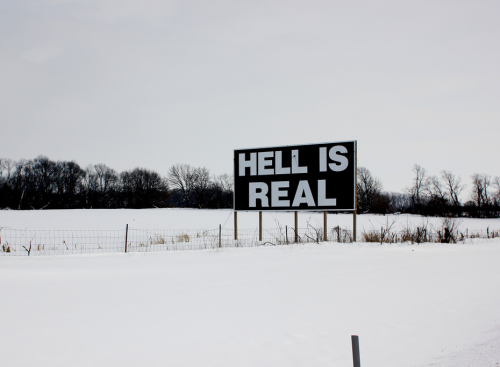Killing a man can mean more for the killer than it does for the man killed
Examiners found much of the girl mashed inside the digestive tract. “A goddamn murderer,” the dead child’s parents said of the wolf that robbed her. “A goddamn demon.” But Core knew otherwise. The raider, this marauder, thief in the night—she dared to intrude not because it was her wish but because it was her need. Who was the transgressor here? He wanted to scold these parents, insist on a fine for their wanton camping in a restricted dale, for the plastic trash dumped beside their tent, but he could not. (p. 8*)
He’d seen his daughter only once in the last three years, when she came home the morning after her mother’s stroke. Three crawling years. Life was not short, as people insisted on saying. He’d quit cigarettes and whiskey just before she was born. He wanted to be in health for her and knew then that ten years clipped from his life by drink and smoke were ten years too many. Now he knew those were the worthless years anyway, the silver decade of life, a once-wide vista shrunk to a keyhole. Not all silver shines. As of this morning he had plans to return to cigarettes and whiskey both. He regretted not buying them at the airport. (p. 12*)
“He said he’d never leave me. That’s what men say. Words can’t be worthless, just thrown away like some trash. There’s punishment for the wrong words.”
“But I’ve found that sometimes life interferes with words. Or changes what you meant by them.” (p. 20*)
He knew what haunted meant. The dead don’t haunt the living. The living haunt themselves. (p. 23*)
“Do you know the name of this village?” she asked.
“Keelut.”
“Say its meaning.”
“I don’t know its meaning.”
“Its meaning is an evil spirit disguised as a dog. Or a wolf.” (p. 27*)
He’d never seen a daylight detail that could compete with midnight’s verity. The predawn dark never learned to lie. (p. 31*)
He breathed through sobs as a woman breathes through birth—solar plexus sobs, and he gave in to them, knowing this was his only time, his only chance for tears. (p. 45*)
“Do you like a story, traveler?”
“I like the truth.”
“The truth. Every story is the truth,” and he laughed the smoke loose from his nose. (p. 77*)
Killing a man can mean more for the killer than it does for the man killed. Cheeon had let his pistol dangle there in his hand, in the attic of the cabin he’d built with that hand. He let Marium see it, didn’t even have to raise it at him—he just knew. He’d prepared, waited for this, with that machine gun, the tripod bolted to the floor. And it all played out as he had wished. Marium gave him what he’d wanted. And for that he felt shame. (p. 87*)
She brushed snow from the other wing, tested her weight on it, and entered through the missing glass. Behind the seats several wood-slat crates of mail. The year stamped on the letters was 1968. She dropped a bag down to Slone—there was nothing in the plane they needed—and for two weeks that winter she read these letters, forgotten messages from worlds she tried to imagine, amazed by the varied handwriting of people who had long since moved on to other lives.
She read these lines aloud to Slone, dulled blue ink on peach-colored paper that still held a ghostly whiff of perfume, lines from Mary to Joseph that began, “Please don’t you dare go to that jungle over there. There’s no love in war and I have all this love for you waiting. You can dodge it, Joe. Just run, come here to me, stay with me, they’ll never find you here.” (p. 139*)
* sur ma liseuse
William Gilardi - Hold the Dark (Liveright, 2014)

Commentaires
Enregistrer un commentaire
Si le post auquel vous réagissez a été publié il y a plus de 15 jours, votre commentaire n'apparaîtra pas immédiatement (les commentaires aux anciens posts sont modérés pour éviter les spams).